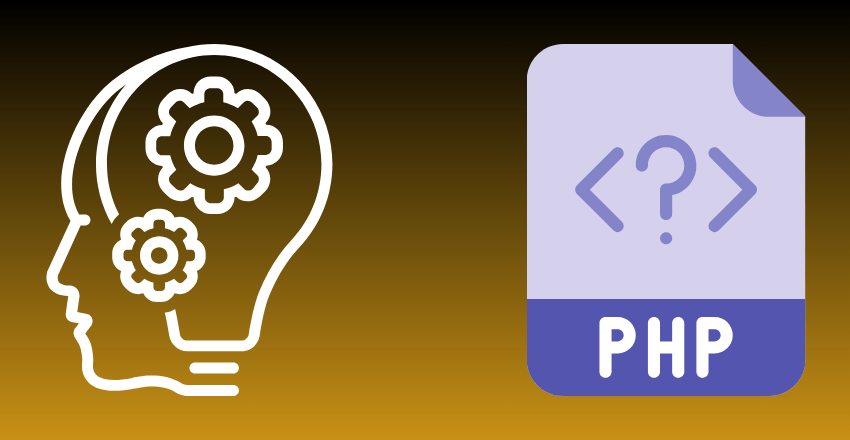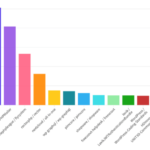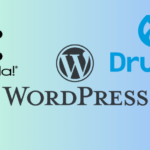
The Role of PHP Developers extends beyond coding; they architect digital solutions, transforming ideas into functional, user-friendly web applications.
Have you ever wondered what makes a website run smoothly behind the scenes? The answer lies in the expertise of PHP developers. These professionals play a critical role in ensuring website functionality and success.
PHP developers are responsible for creating, maintaining, and updating the code that powers websites. They use the PHP programming language to build dynamic, interactive, and responsive web pages that allow users to browse, shop, and engage with content seamlessly.
Without the work of PHP developers, a website’s user experience would suffer, and its performance would be below par. Let’s delve into the responsibilities and tasks of PHP developers to gain a better understanding of their role.
The Responsibilities of PHP Developers
PHP developers play a crucial role in the development and maintenance of websites. They are responsible for creating and implementing server-side web application logic, ensuring the smooth running of websites and web applications.
Some of the main responsibilities of PHP developers include:
1. Writing and Testing Code
PHP developers write and test code to create and maintain websites and web applications. They use PHP frameworks and other tools to build the code that powers a website’s functionality and features.
2. Collaborating with Other Developers
PHP developers work closely with other developers, including web designers and front-end developers, to ensure the seamless integration of different components and elements of a website.
3. Debugging and Troubleshooting
PHP developers are responsible for debugging and troubleshooting any issues that arise with a website or web application. They use various tools and techniques to identify and fix problems that may arise during the development process or after a website has gone live.
4. Database Integration
PHP developers are often tasked with integrating databases into a website or web application. This involves creating databases, designing database schemas, and writing SQL queries to retrieve and store data.
In summary, PHP developers have a significant impact on website development and maintenance. They are responsible for writing and testing code, collaborating with other developers, debugging and troubleshooting, and integrating databases.
PHP Developer Role Overview
PHP developers play a crucial role in website development and maintenance. They are responsible for creating, testing, and implementing PHP code to ensure websites run smoothly and efficiently.
The duties of PHP coders are wide-ranging and varied. They work closely with web designers and front-end developers to create websites that meet client specifications and are user-friendly. They also collaborate with database administrators to ensure data is stored and retrieved accurately.
PHP developers must have a strong understanding of programming languages such as HTML, CSS, and JavaScript, as well as database management systems like MySQL. They must also have a keen eye for detail and the ability to troubleshoot and debug issues as they arise.
Duties of PHP Coders
PHP developers have a range of responsibilities in their role, including:
- Developing and testing PHP code for websites and web applications
- Collaborating with web designers and front-end developers to ensure seamless website functionality
- Maintaining and updating existing websites to ensure they remain functional and up-to-date
- Working with database administrators to ensure data is stored and retrieved accurately
- Troubleshooting and debugging issues as they arise
- Staying up-to-date with emerging trends and advancements in PHP development
To excel in their role, PHP developers must have strong communication skills and the ability to work in a team environment. They must also be adaptable and able to keep up with the ever-evolving landscape of web development.
Understanding PHP Programming
If you are interested in web development, you have probably heard of PHP programming. PHP is a server-side scripting language that is widely used to create dynamic web pages and applications. Its code is processed by a web server before being sent to a user’s browser, allowing for customization and interactivity.
PHP programming is relatively easy to learn and provides a lot of flexibility to developers. It is an open-source language, meaning that it is free to use and update. PHP code can be embedded into HTML code, allowing for seamless integration with web design.
PHP coding follows a specific syntax that is similar to other programming languages. It includes basic control structures such as if/else statements and loops, as well as functions and classes for more complex programming tasks. Experienced PHP developers can also use advanced features such as object-oriented programming and database integration.
One of the benefits of PHP programming is its compatibility with many different platforms and operating systems. PHP is also widely supported by web hosting services, making it easy for developers to get started with minimal investment.
PHP developers work closely with front-end developers to ensure that website functionality and design are seamlessly integrated. They also collaborate with database administrators to ensure that data is stored and retrieved efficiently. PHP developers have a critical role in website development and are essential for creating dynamic and functional websites.
Working with PHP Frameworks
PHP frameworks are essential tools for PHP developers that provide a structured approach to web application development. They offer a set of pre-written code and libraries that simplify PHP coding and accelerate the development process. In this section, we explore some of the popular PHP frameworks used by PHP developers.
Popular PHP Frameworks
One of the most widely used PHP frameworks is Laravel, known for its simple and elegant syntax that enables rapid development of web applications. It provides a range of features, including routing, authentication, and database management.
Symfony is another popular PHP framework known for its flexibility and scalability. It offers a wide range of reusable components and libraries, enabling developers to build complex web applications with ease.
CodeIgniter is lightweight and easy to use, making it an excellent framework for small to medium-sized web applications. It offers outstanding performance and security features and is highly customizable.
CakePHP is a rapid development framework that allows developers to create web applications quickly. It offers strong security features and tools for database access, validation, and caching.
Benefits of PHP Frameworks
PHP frameworks offer numerous benefits for PHP developers, including increased productivity, improved code organization, and enhanced application performance. They provide a standard structure for web application development, making code maintenance and upgrades easier. Frameworks also offer features such as user authentication, input validation and database management, significantly reducing the time and effort required to develop these essential components.
In addition to productivity gains, frameworks ensure code consistency, making it easier for developers to collaborate on a project. Most popular PHP frameworks come with extensive documentation, tutorials, and online communities, making it easier for developers to get started and troubleshoot issues.
Integrating Databases with PHP
PHP developers often work with databases to store and retrieve data for websites and applications. This integration allows for dynamic and interactive features like user accounts, forms, and search functionalities.
To work with databases in PHP, developers primarily use MySQL, PostgreSQL, MS SQL, and Oracle. They also use PHP extensions such as PDO and MySQLi for connecting to databases, executing queries, and retrieving data.
| Techniques | Description |
|---|---|
| Object-Relational Mapping (ORM) | A technique that maps object-oriented code to relational databases. Popular PHP ORM frameworks include Doctrine, Propel, and Eloquent. |
| Structured Query Language (SQL) | A language that is used to communicate with databases and retrieve data. PHP developers use SQL to create queries for the databases they are using. |
Using these tools and techniques, PHP developers can create reliable and efficient database-driven websites and applications that store and retrieve data seamlessly.
Overall, working with databases in PHP is an essential skill for developers to have and is a crucial component of successful website development.
Collaborating with Web Designers and Front-End Developers
Web development is a team effort that requires close collaboration between PHP developers, web designers, and front-end developers. While each role has its unique responsibilities, they all work together to create a seamless and functional website.
PHP developers collaborate with web designers to ensure that the website’s back-end functionality complements the front-end design. They work with front-end developers to integrate server-side code with the user interface, making sure that the website is user-friendly and responsive.
Effective collaboration requires clear communication and a solid understanding of each other’s roles. PHP developers must be able to explain technical requirements in non-technical terms, while web designers and front-end developers must understand the limitations and possibilities of PHP development.
Collaboration also requires a willingness to adapt and be flexible. PHP developers must be open to feedback from web designers and front-end developers on how to improve the functionality and user experience of the website. They must also be willing to iterate on their code to incorporate changes from the design and front-end teams.
Overall, successful collaboration between PHP developers, web designers, and front-end developers is essential for creating a functional, user-friendly website that meets the needs of both the business and its users.
Debugging and Troubleshooting PHP Code
Debugging and troubleshooting PHP code is an essential part of the development process. As a PHP developer, you will encounter bugs and errors in your code that can cause your website to malfunction. Therefore, it’s important to have the necessary skills and tools to identify and fix these issues.
When debugging PHP code, there are several techniques you can use to pinpoint the problem. One of the most common methods is to use debugging software, such as Xdebug or Zend Debugger. These programs allow you to step through your code line by line, inspect variables and functions, and identify where things are going wrong.
Another important tool for debugging PHP code is log files. By enabling logging in your PHP.ini file, you can record events and errors that occur during the execution of your code. This information can then be used to track down issues and fix them.
When troubleshooting PHP issues, it’s important to have a systematic approach to problem-solving. Start by identifying the symptoms of the issue and then work backwards to find the root cause. This may involve checking your code for syntax errors, reviewing your database connections, or testing your website on different browsers or devices.
It’s also important to stay up to date with the latest PHP updates and best practices for debugging and troubleshooting. Attend conferences, read industry publications, and participate in online forums to stay informed about the latest trends and techniques.
By mastering the art of debugging and troubleshooting PHP code, you can ensure that your websites function as intended and provide a positive user experience for your visitors.
Staying Updated in the Evolving PHP Landscape
PHP development is constantly evolving, and it’s crucial for PHP developers to stay up to date with the latest trends and advancements. By doing so, they can ensure they are using the most efficient and effective programming techniques, while delivering high-quality results to clients.
The Importance of Continuous Learning
One of the best ways for PHP developers to stay updated is through continuous learning. This can involve attending industry conferences, taking online courses, or reading relevant publications. Additionally, joining online communities and forums can provide valuable insights and opportunities for knowledge sharing.
The Latest Trends in PHP Development
Some of the latest trends in PHP development include the increasing use of automation and artificial intelligence (AI) in programming tasks, the adoption of microservices architecture, and the growth of headless CMS solutions. Additionally, there has been a surge in the use of PHP-based content management systems like WordPress and Drupal, as well as the integration of PHP with new front-end technologies like React and Angular.
PHP developers who stay up to date with these trends can ensure they are delivering the most up-to-date and effective solutions to clients. Staying informed also helps stay ahead of the competition and enables PHP developers to adapt to rapidly changing technological environments.
Hiring PHP Developers for Your Project
If you’re looking to hire PHP developers for your website or application development project, there are a few things you should keep in mind.
First, consider whether you want to hire a single developer or outsource your project to a PHP development company. Outsourcing can be a cost-effective solution for small businesses or startups, as it allows you to work with an experienced team of developers without the overhead of hiring full-time employees.
When looking for a PHP developer, be sure to review their portfolio and check for relevant experience in areas such as PHP programming, database integration, and working with frameworks. It’s also important to assess their communication skills and ability to collaborate with other team members, such as web designers and front-end developers.
Another factor to consider is their availability and scheduling. Make sure the developer you hire is able to commit to your project timeline and can provide regular updates on progress.
When outsourcing PHP development, it’s important to choose a reputable company that has a proven track record of delivering high-quality projects on time and within budget. Companies such as Hire PHP Developer in Brazil South America can provide a team of experienced PHP developers to work on your project, while also offering project management and quality assurance services.
By keeping these factors in mind, you can ensure that you hire the right PHP developer or team for your project and achieve success with your website or application.
Conclusion
In conclusion, PHP developers play a crucial role in the development of websites by creating and maintaining the necessary programming and coding. Their responsibilities include working with frameworks, integrating databases, collaborating with front-end developers and troubleshooting issues that may arise.
As technology evolves, it is important for PHP developers to stay updated with the latest trends and advancements in their field. Continuous learning and development is essential to ensure they can deliver the best results for their clients.
If you’re looking to hire PHP developers for your project, it is important to consider their skills, experience, and qualifications. Outsourcing PHP development projects to companies such as Hire PHP Developer in Brazil South America can provide you with access to skilled developers with vast experience and a track record of success.
Overall, PHP developers are a crucial part of any website development project, and their contribution cannot be underestimated. By understanding their role and responsibilities, you can ensure your website is created to the highest standards and delivers the best user experience for your audience.
FAQs
1. What Exactly Do PHP Developers Do?
Answer: PHP Developers design, develop, and maintain PHP-based web applications, ensuring optimal functionality and user experience.
2. How Do PHP Developers Collaborate with Other Teams?
Answer: They work closely with front-end developers, designers, and database administrators to deliver cohesive and integrated web solutions.
3. Are PHP Developers Only Responsible for Backend Development?
Answer: Primarily, yes. However, many PHP Developers possess full-stack capabilities, handling both backend logic and front-end integration.
4. How Do PHP Developers Ensure the Security of Web Applications?
Answer: They implement security protocols, regularly update code, and utilize tools to safeguard against vulnerabilities and breaches.
5. Why is the Role of PHP Developers Crucial in Web Development?
Answer: PHP Developers play a key role in building dynamic, data-driven websites, ensuring scalability, performance, and user satisfaction.
Ashley is an esteemed technical author specializing in scientific computer science. With a distinguished background as a developer and team manager at Deloit and Cognizant Group, they have showcased exceptional leadership skills and technical expertise in delivering successful projects.
As a technical author, Ashley remains committed to staying at the forefront of emerging technologies and driving innovation in scientific computer science. Their expertise in PHP web development, coupled with their experience as a developer and team manager, positions them as a valuable resource for professionals seeking guidance and best practices. With each publication, Ashley strives to empower readers, inspire creativity, and propel the field of scientific computer science forward.







